News + Media
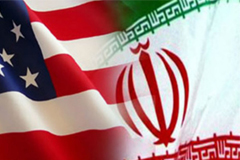 |
In the NewsMarch 20, 2008A solution for the US-Iran nuclear standoffThomas R. Pickering, William Luers, and Jim WalshNew York Review of BooksThe recent National Intelligence Estimate's conclusion that Tehran stopped its efforts to develop nuclear weapons in 2003, together with the significant drop in Iranian activity in Iraq, has created favorable conditions for the US to hold direct talks with Iran on its nuclear program. The Bush administration should act on this opportunity, if for no other reason than that its current position is growing weaker, and without such an initiative, Iran will continue its efforts to produce nuclear fuel that might, in the future, be used to build nuclear weapons. |
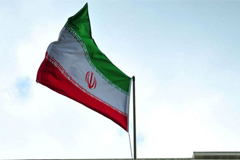 |
Analysis + OpinionMarch 3, 2008How to end the US-Iran standoffWilliam Luers, Thomas Pickering and James WalshInternational Herald TribuneContinuing to try to sanction Iran has made life difficult for some Iranians but will not coerce Iran to change its commitment to a nuclear program. |
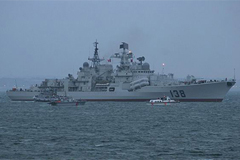 |
In the NewsMarch 1, 2008US-Japan relations and a changing AsiaThe Center organized a two-day retreat entitled "US-Japan Relations and a Changing Asia." The event was held on Feb. 29 and March 1, 2008, at the Endicott House at MIT. Moderating the discussions was, Ford International Professor of Political Science and director of CIS. Llewelyn Hughes, a doctoral candidate in the Department of Political Science and an affiliate of the Security Studies Program, served as rapporteur. |
 |
AuditMarch 1, 2008A solution for the US–Iran nuclear standoffWilliam Luers, Thomas R. Pickering, and Jim WalshThe recent National Intelligence Estimate’s conclusion that Tehran stopped its efforts to develop nuclear weapons in 2003, together with the significant drop in Iranian activity in Iraq, has created favorable conditions for the US to hold direct talks with Iran on its nuclear program. |
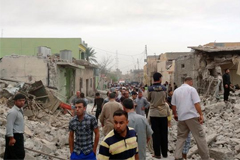 |
AuditFebruary 1, 2008Iraq's three civil warsJuan Cole, University of MichiganAll war situations are a little bit opaque, but from reading the Iraqi press in Arabic, I conclude that there are three major struggles for power of a political and violent sort. What's striking is how little relevant the United States is. |
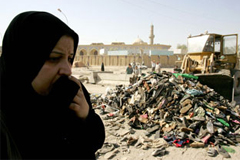 |
Analysis + OpinionJanuary 19, 2008The murky toll of the Iraq warJohn TirmanBoston GlobeAdd to that other numbers that fill in our understanding even more - such as the scale of the flow of refugees or the women widowed by the war - and we have useful information. |
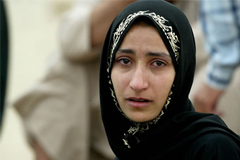 |
News ReleaseJanuary 18, 2008MIT website puts human face on Iraq WarAs the war in Iraq approaches its fifth anniversary, a new website from MIT's Center for International Studies aims to provide an accurate account of living conditions, as well as civilian injuries and deaths due to political violence, throughout the Middle Eastern state. |
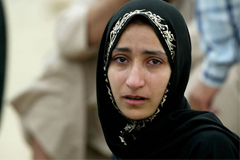 |
In the NewsJanuary 15, 2008Iraq: the human costConventional wisdom in American politics focuses only on American costs in the war in Iraq: the casualties to U.S. soldiers, the financial costs, and sometimes the strategic costs. But the human cost to the Iraqis themselves are nearly ignored in political discourse, the news media, and intellectual circles. This site is a corrective to those oversights. We present empirical reports, studies, and other accounts that convey and assess the consequences of war for the people of Iraq. |
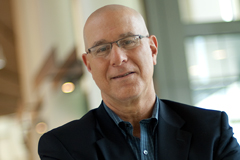 |
News ReleaseJanuary 15, 2008Samuels named finalist for Lionel Gelber PrizeRichard J. Samuels is among five finalists for the Lionel Gelber Prize, one of the world's leading awards for books on international affairs. Samuels, director of CIS and Ford International Professor of Political Science, is nominated for Securing Japan: Tokyo's Grand Strategy and the Future of East Asia, published last September by Cornell University Press. |
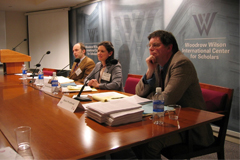 |
In the NewsJanuary 10, 2008The liberal foreign policy tradition: pluses, problems, and prospectsThe MIT Center for International Studies, in cooperation with the History and Democracy Project and the U.S. Section of the Woodrow Wilson International Center for Scholars, convened a one-day meeting on January 10, 2008, at the Wilson Center to explore the liberal tradition in U.S. foreign policy. Seven scholars and three interlocutors, and an invited audience of forty, provided insights on Woodrow Wilson, Franklin D. Roosevelt, John F. Kennedy and others, and how they informed and shaped this tradition with respect to democratization and rights, global economic equity, war and peace, and other topics. This exceptionally rich conversation is captured on this video (best viewed in Internet Explorer). Click here to see the agenda. |


